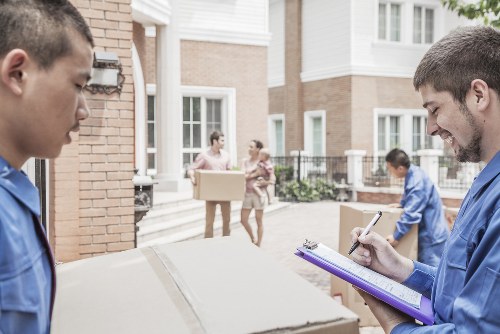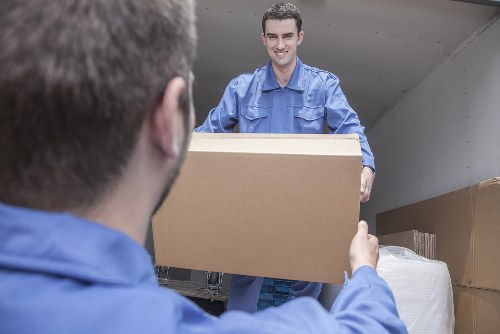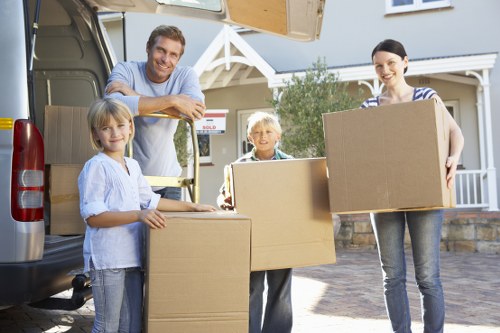Comprehensive Guide to Council Rubbish Collection in Luton

Proper rubbish collection is essential for maintaining a clean and healthy environment in Luton. The council provides a structured system to ensure that residents can dispose of their waste efficiently and responsibly.
Understanding the schedule and guidelines for rubbish collection helps prevent unnecessary waste buildup and promotes recycling efforts across the community.
This guide aims to provide detailed information about the council rubbish collection services in Luton, including schedules, types of waste accepted, and tips for effective waste management.
Rubbish Collection Schedule

The council in Luton operates a regular rubbish collection schedule to accommodate the needs of its residents. Most households have designated pickup days based on their postcode areas.
Typically, general household waste is collected weekly, while recycling collections occur bi-weekly. It's important to adhere to the scheduled days to ensure timely waste disposal.
During public holidays or unforeseen circumstances, the council may adjust the collection schedule. Residents are advised to check the official council website or contact local authorities for updates.
Types of Waste Accepted

The council rubbish collection service in Luton accepts various types of waste, each requiring specific disposal methods. Proper segregation of waste is crucial for effective recycling and waste management.
General Waste: Includes non-recyclable items such as food scraps, diapers, and certain types of packaging.
Recyclable Materials: Paper, cardboard, glass bottles, metal cans, and certain plastics. These should be cleaned and sorted before collection.
Hazardous Waste

Hazardous waste like batteries, paint, and chemicals require special handling. The council provides designated drop-off points for such materials to ensure safe disposal.
Residents should not place hazardous waste in regular bins. Instead, utilize community collection points or participate in local hazardous waste collection events.
Proper disposal of hazardous waste prevents environmental contamination and promotes public safety.
Recycling Initiatives

Luton council encourages recycling through various initiatives aimed at reducing landfill waste and promoting sustainable practices.
Recycling bins are provided to all households, and educational programs are available to inform residents about the importance of recycling and how to participate effectively.
Community recycling centers offer additional resources and support for bulk waste disposal and specialized recycling needs.
Local Relevance: Nearby Areas to Luton
Luton is surrounded by several nearby areas, each with its unique features and proximity to council rubbish collection services. Understanding these areas can help residents in neighboring regions access effective waste management solutions.
- Bury: Located just west of Luton, Bury benefits from the same collection schedules and recycling programs.
- Dunstable: To the north, Dunstable has tailored waste collection services aligning with Luton's standards.
- Leagrave: An area within Luton, Leagrave follows the central rubbish collection guidelines.
- Stopsley: Situated southwest, Stopsley participates in Luton’s comprehensive waste management system.
- High Town: A vibrant part of Luton, High Town adheres to the council's waste collection policies.
- Ramsden Heath: East of Luton, Ramsden Heath ensures proper rubbish disposal through council services.
- Lewsey: Covering Lewsey Park and other neighborhoods, Lewsey follows Luton's collection schedules.
- Houghton Regis: A neighboring town, Houghton Regis coordinates with Luton for waste collection.
- Sandy: Further northeast, Sandy residents access similar rubbish collection services.
- Harlington: Southwest of Luton, Harlington benefits from efficient waste management practices.
- Ramsden Heath: Providing additional support to lift the overall efficiency of Luton’s waste collection.
- Leagrave: Ensuring that all subdivisions within Luton receive consistent rubbish collection services.
Tips for Effective Rubbish Collection

Maximizing the efficiency of council rubbish collection involves understanding and following best practices. Here are some tips to ensure smooth waste disposal:
- Sort Your Waste: Separate recyclables from general waste to facilitate effective recycling processes.
- Secure Your Bins: Use lids and ensure bins are placed correctly on collection days to prevent spillage and pests.
- Limit Overloading: Avoid overfilling bins to ensure waste can be collected without difficulty.
- Follow Collection Schedules: Adhere to the assigned pickup days to maintain consistency in waste management.
- Participate in Recycling Programs: Engage in community recycling initiatives to support environmental sustainability.
Special Waste Collection Services

The council offers specialized waste collection services for items that require distinct handling. These services ensure that bulky or hazardous materials are disposed of safely and responsibly.
Residents can arrange for special collections by contacting the council, especially for items like furniture, electronics, and construction debris.
Scheduling these collections in advance helps prevent clutter and promotes a cleaner community.
Environmental Impact of Rubbish Collection

Effective rubbish collection plays a crucial role in reducing the environmental footprint of the community. Proper waste management minimizes landfill use and promotes recycling, which conserves natural resources.
By participating in council rubbish collection services, residents contribute to the preservation of Luton’s natural beauty and public health.
The council continuously strives to enhance its waste management strategies to align with environmental sustainability goals.
Challenges and Solutions

Managing waste in a growing community like Luton presents several challenges, including increased waste generation and the need for efficient collection systems.
The council addresses these challenges by expanding recycling programs, optimizing collection routes, and investing in sustainable waste management technologies.
Community engagement and education are also pivotal in overcoming waste management obstacles.
Future of Rubbish Collection in Luton

The future of council rubbish collection in Luton is focused on sustainability and innovation. Initiatives include increasing recycling rates, reducing single-use plastics, and implementing smart waste management systems.
Advancements in technology will enable more efficient collection processes and better waste tracking, ensuring that resources are utilized optimally.
Long-term plans aim to make Luton a model for effective and environmentally friendly waste management.
Conclusion

Council rubbish collection in Luton is a comprehensive service designed to keep the community clean and promote sustainability. By understanding the schedules, types of waste accepted, and participating in recycling initiatives, residents can effectively manage their waste.
Collaboration between the council and the community is essential for maintaining a healthy environment and achieving long-term waste management goals.
Your active participation and adherence to waste collection guidelines make a significant difference in preserving Luton’s cleanliness and environmental health.
Frequently Asked Questions
1. How do I find out my rubbish collection day in Luton?
You can find your collection day by visiting the Luton Borough Council website and entering your postcode in the waste collection section.
2. What items are not accepted in the general waste collection?
Hazardous materials, electronics, and bulky items are not accepted in general waste collections. These should be taken to designated recycling centers or scheduled for special collection.
3. How can I reduce my household waste?
Reduce waste by recycling properly, composting organic materials, reusing items, and minimizing the use of single-use plastics.
4. Is there a charge for extra rubbish collections in Luton?
Yes, the council may charge for additional collections beyond the standard service. Contact the council for specific pricing and arrangements.
5. How does the council handle electronic waste?
Electronic waste should be taken to designated recycling centers or scheduled for special collection services provided by the council.